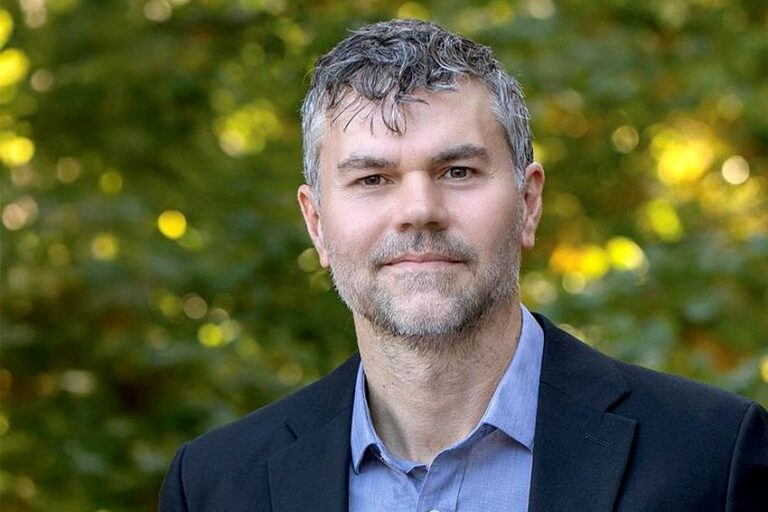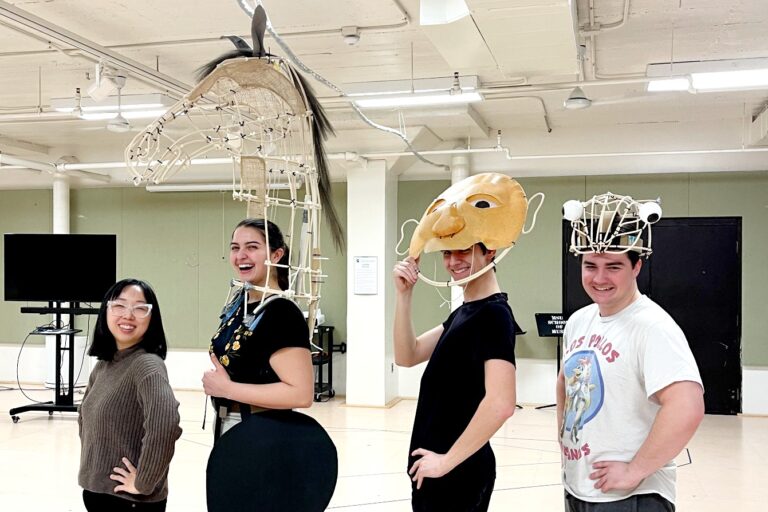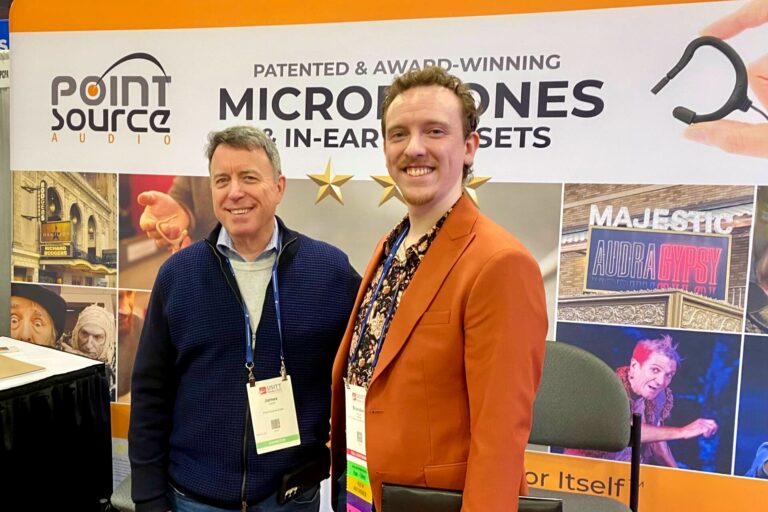Rob Roznowski, Professor in the Department of Theatre, is spearheading an innovative IAH (Integrative Arts and Humanities) course that delves into the transformative potential of the creative arts to alleviate anxiety and stress and help promote better mental health.
The curriculum encompasses various artistic disciplines, including theatre, dance, music, art, and creative writing, and looks at ways these activities can reduce stress while promoting positive mental health benefits.

The class culminated with the students creating their own de-stressing activities that they presented to students in the residence hall neighborhoods to help them de-stress as they prepare for final exams.
“Having the opportunity to go to each neighborhood and share my original exercise was very rewarding,” said Ilana Diskin, a junior Horticulture major who was a student in the class. “It felt fulfilling to give back to the students at MSU and offer them the tools to relax and unwind.”
“Having the opportunity to go to each neighborhood and share my original exercise was very rewarding. It felt fulfilling to give back to the students at MSU and offer them the tools to relax and unwind.”
Ilana Diskin
Roznowski designed the class to reignite creativity among students, especially non-arts majors, and found that many of the students experienced a revitalizing return to creative freedom after years of neglect.
“We began observing art at the museums and gardens on campus and then eased our way into self-creation,” Roznowski said. “For many, they were returning to drawing or creative writing for the first time in many years. They all knew about the arts restorative properties but never took the time to engage. This course forced them to do so.”

In conjunction with the creative activities, students also were exposed to readings, videos, and studies that supported the benefits of each activity, and then engaged in practical examples of de-stressing arts activities. These de-stressing activities included writing letters to someone they are grateful for, acting exercises that promoted a positive inner monologue, creating an autobiographical playlist and Tik Tok videos, and, as Roznowski put it, “the days they dreaded and then loved: karaoke and teaching each other popular dances.”
“On a very basic level, engaging in a creative act relieves the mind from the focus on negative self-talk or the stress of the list of demands that you need to fulfill,” Roznowski said. “On another level, the act of creating something unique promotes a sense of pride in even the smallest of creative acts.”
“On a very basic level, engaging in a creative act relieves the mind from the focus on negative self-talk or the stress of the list of demands that you need to fulfill.”
Rob Roznowski, Professor in the Department of Theatre
Collaboration played a pivotal role in the course, with contributions from various arts disciplines enhancing its depth.
“Lots of amazing collaborators helped out in this course,” Roznowski said. “Their expertise in other arts disciplines really helped offer a more robust course.”
The individuals who spoke to the class include Alexandria Davis, Assistant Professor of Theatre with a specialty in Dance in the Department of Theatre; Sarah Hendrickson, Academic Specialist in the Department of Theatre with a specialty in Improvisation and Acting; Michelle Word and Kristin McCool from the MSU Broad Art Museum; and Jonathan Ritz, Director of Wellness for the College of Arts & Letters, who spoke to the class at the beginning of the semester and helped ease any stigma related to discussions on mental health.

“Throughout this course we have done many memorable exercises that have opened my eyes to a new understanding of mental health,” said Ellie Misiak, a sophomore Human Resources major. “Mental health was a topic talked about a lot in this class, unlike any other class I have taken in the past. Hearing a professor be so open about a topic a lot of us as students deal with was more than refreshing. It opened a safe space for us as a class to realize we are not alone and our feelings are sometimes shared with others.”
The course’s flexibility also allowed students to explore and develop individual exercises that best suited their needs.
“Throughout this course we have done many memorable exercises that have opened my eyes to a new understanding of mental health.”
Ellie Misiak
“Some of the students reported that some of the activities meant to de-stress actually stressed them out while others felt their anxiety was abated,” Roznowski said. “Part of the course was figuring out what works best for you.”
In the final segment, students devised their own creative arts exercises tailored to help peers destress during finals. After presentations in class, they offered these free activities to students in the residence hall neighborhoods.

Roznowski praises the IAH format for its suitability in delivering such a course, particularly in extending the arts to students beyond the College of Arts & Letters.
“I love IAH as a concept and the freedom it offers to teach outside of your sometimes narrow part of your discipline,” Roznowski said. “This course allowed me to explore a deeply held interest in Gen Z’s rise in reporting mental health concerns and the restorative and healing power of the arts. These students are from all over the university and rarely get the time to focus on anything other than tests. At the beginning of class, students expected to be graded at the end of each activity we did rather than enjoy it. That took a while to understand that the actual focus on the activity was the only focus for the day.”


